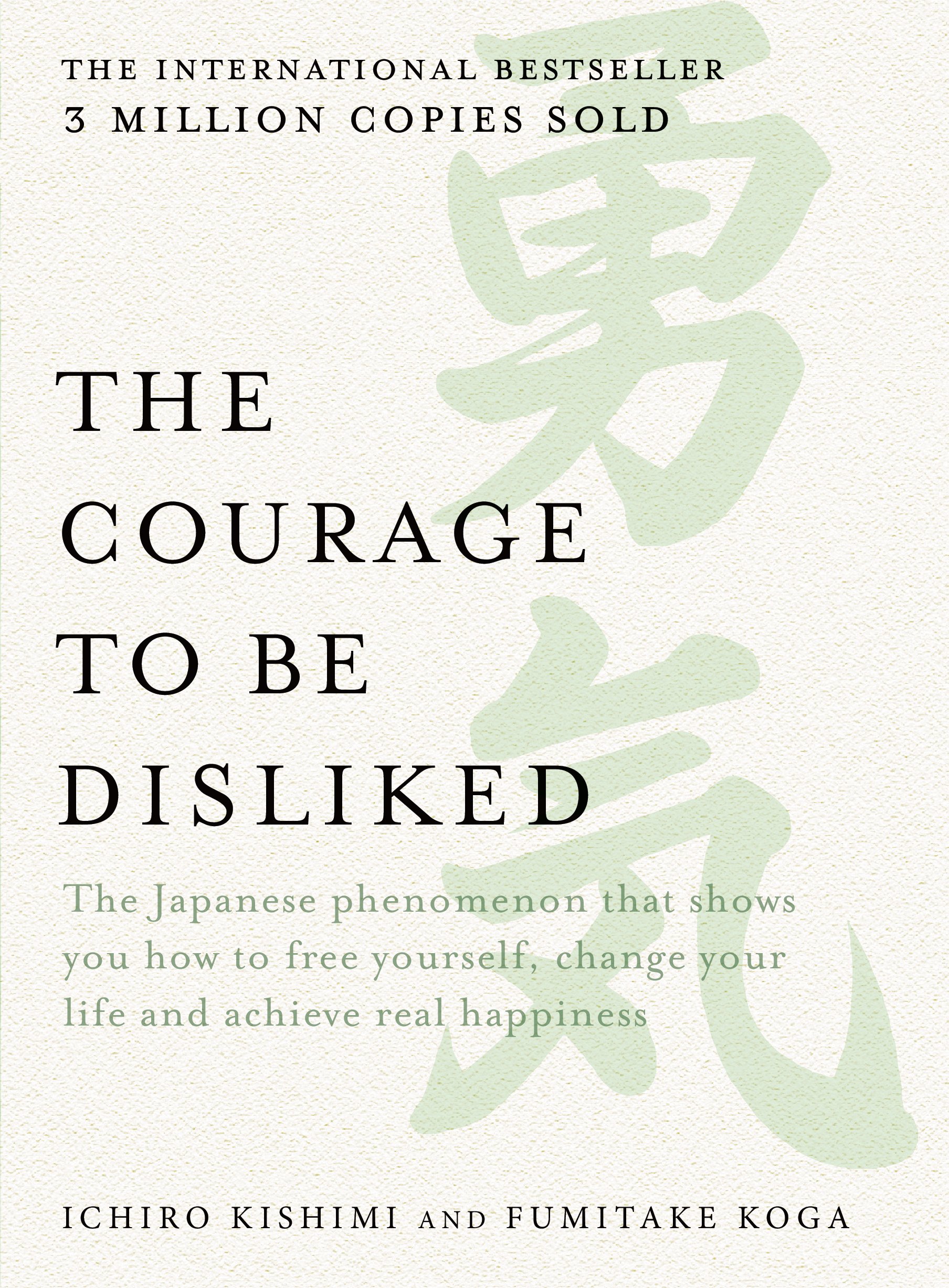I recently read a fascinating book, which helped me reexamine my overall disposition.
Key takeaways: happiness takes courage, don’t worry what others think (but don’t engage in wrongdoing).
The Courage to Be Disliked
By Ichiro Kishimi and Fumitake Koga
Book Notes #1
By Kabir Sehgal
Why I read this book
- Title – I was intrigued by this provocative title. The book also has a soaring subtitle: The Japanese Phenomenon That Shows You How to Change Your Life and Achieve Real Happiness
What this book is about
- Adlerian Psychology
Alfred Adler was an Austrian psychologist and contemporary of Sigmund Freud. This book is the Japanese take on this school of psychology/philosophy by Ichiro Kishimi (co-authored with Fumitake Koga, an acclaimed writer)
What are the key points?
- You have the power to change how you feel about anything.
We perceive the world, and if we shift our perception, the world can change. You can see his ideas shine through in books by Dale Carnegie and Stephen Covey.None of us live in an objective world, but instead in a subjective world that we ourselves have given meaning to. The world you see is different from the one I see, and it’s impossible to share your world with anyone else. –From the book
- The past doesn’t matter.
It’s done. You can’t change it. So why obsess over it?
Don’t worry about causation but purpose.
What are your present goals? Things take on the meaning that we give them.
So if you give something less importance, it won’t mean as much. - Unhappiness is a choice.
You weren’t born that way. Yes, some messed up things may have happened to you, but can’t change that now. We can only experience the now and look ahead.Yes, Adlerian psychology is a psychology of courage. Your unhappiness cannot be blamed on the past or your environment. And it isn’t that you lack competence. You just lack courage. One might say you are lacking in the courage to be happy. — From the book
- All problems are interpersonal problems.
Getting along with people can be difficult. We experience feelings of superiority and inferiority in the context of others. If you change, people around you will also change. You can affect the atmosphere and disposition of others around you. - Don’t worry what other people think.
Don’t be mean or a bad actor. Don’t intrude on other people’s lives.
When you buy into other people’s value system, it will be hard to measure up. It isn’t a competition. You’re the only one worrying about how you look in that suit/dress/attire. It follows that you don’t need to seek recognition from others.If you are not living for yourself, then who is going to live for you? You are living your only life. When it comes to who you are living it for, of course it’s you.
- It’s OK to be disliked
Not everyone is going to like you. And that’s OK. It shows that you are living freely and in accordance to your values. You’ll be free when you stop worrying about what other people think. It shouldn’t be your objective to be disliked or create wrongdoing, however.The courage to be happy also includes the courage to be disliked. When you have gained that courage, your interpersonal relationships will all at once change into things of lightness.
What’s the format?
It’s a Q&A between philosopher and yoga (like Socrates and Aristotle). The dialog is intriguing at times and didactic at other times. But that’s by design. The conversation is a helpful literary device.
Bottom Line
It’s a good read that helped me realize it’s OK to go on about my business. I don’t have to please everyone, and I don’t have to win everyone over. Just be myself, don’t engage in wrongdoing, and find happiness by contributing to causes that are greater than myself.

0 Comments